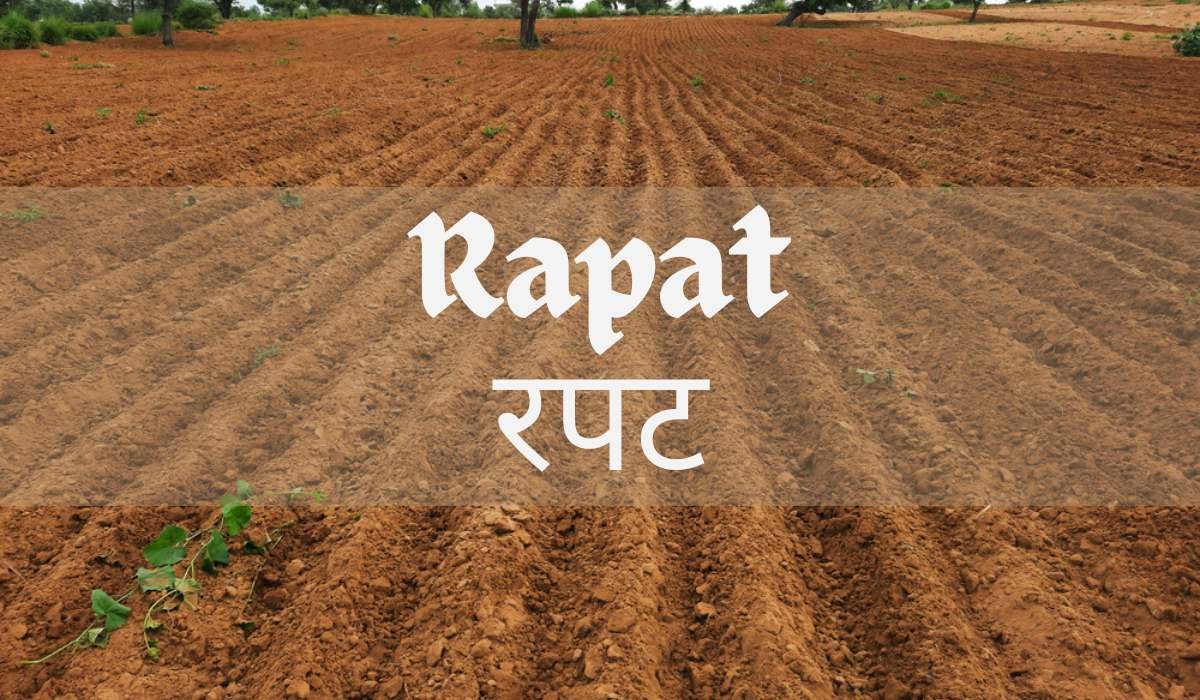Most states in India now offer access to land records online through virtual data repositories. While accessing this vital information is easy, it might now be easy to decipher some of the words used in land record documents because they are full of local terms. A person buying land in Punjab, for instance, might not be able to understand Punjabi words that are part of local land records. One such word is rapat, commonly found in land records in Punjab.
What is rapat in land records?
‘Mutation’ is the English equivalent of rapat; frequently used in Punjab land records. Hence, rapat is the process of property transfer from one person to another in government records for tax calculation purposes. Rapat should not be confused with a sale deed, which is the document used for such transfer. Rapat is the process under which this sale finds a mention in land revenue records. Thus, a rapat number is the mutation number.
Use of rapat
Rapat entries in land records help land revenue officials determine the tax liabilities of the new owner(s). Having a valid rapat number means that you can provide it to the future buyer(s) to ascertain the ownership of the land/property. While rapat entries are not proof of property ownership, they are needed at the time of property sale.
Process to check land record by rapat number in Punjab
Step 1: Go to the official Punjab Jamabandi website at https://jamabandi.punjab.gov.in/Default.aspx
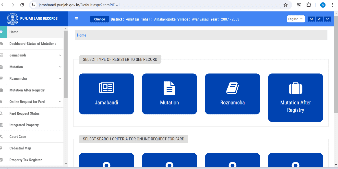
Step 2: Select ‘Roznamcha’ from the options available.
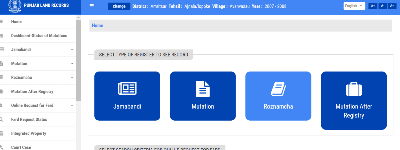
Step 3: Select ‘Rapat No. Wise’.

Step 4: Select the year.
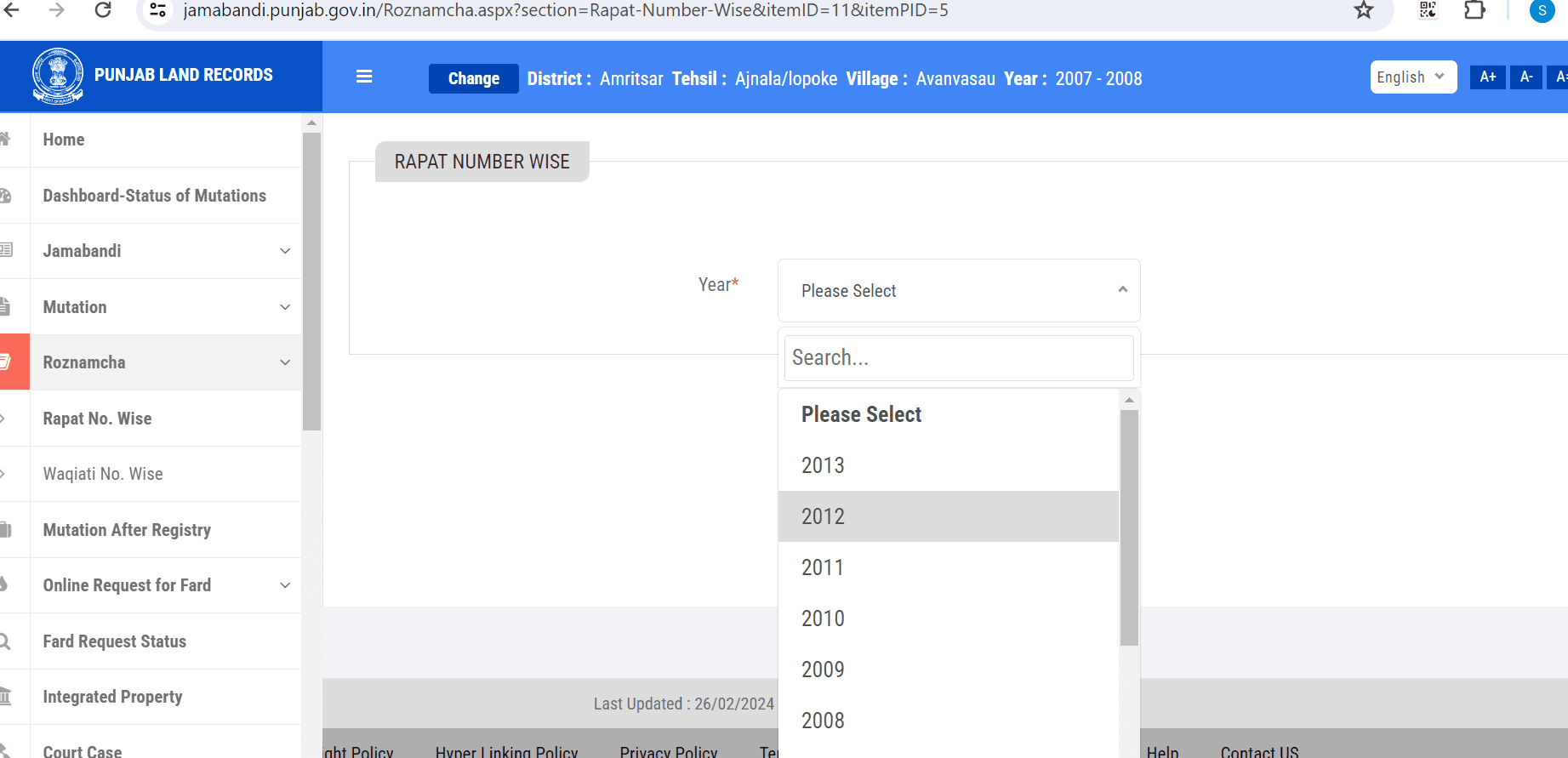
Step 5: Select the rapat number.
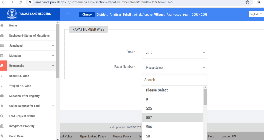
Step 6: Enter the captcha and click on the ‘View Report’ option.

Step 7: You will be able to see the land record details.

Conclusion
Prospective buyers must keep in mind that the rapat number is a useful tool to ascertain property possession. Using this number, they can check the name of the current property owner. However, rapat entries are not proof of property title. If you are planning to buy a property, you must ask for additional documents, aside from the rapat number, before making a decision.
FAQs
What is the meaning of rapat?
A rapat number is assigned to an owner after they complete the mutation process after property purchase and registration.
What is the difference between rapat and roznamcha?
A rapat number signifies that a property has changed hands from one owner to another. Based on this, the tax liability is assigned by the local revenue department to the new owner. Roznamcha is the documentary detail of mutation entries in the land records.
Is the revenue record a title document?
No, according to the Supreme Court, revenue records are not documents of title. These records neither create nor extinguish the title of ownership.
Can I claim the title based on the rapat number?
Rapat entries can only be used as proof of possession over a property and not ownership. The Supreme Court of India has passed several judgements stating the same.
| Got any questions or point of view on our article? We would love to hear from you. Write to our Editor-in-Chief Jhumur Ghosh at [email protected] |

An alumna of the Indian Institute of Mass Communication, Dhenkanal, Sunita Mishra brings over 16 years of expertise to the fields of legal matters, financial insights, and property market trends. Recognised for her ability to elucidate complex topics, her articles serve as a go-to resource for home buyers navigating intricate subjects. Through her extensive career, she has been associated with esteemed organisations like the Financial Express, Hindustan Times, Network18, All India Radio, and Business Standard.
In addition to her professional accomplishments, Sunita holds an MA degree in Sanskrit, with a specialisation in Indian Philosophy, from Delhi University. Outside of her work schedule, she likes to unwind by practising Yoga, and pursues her passion for travel.
[email protected]
